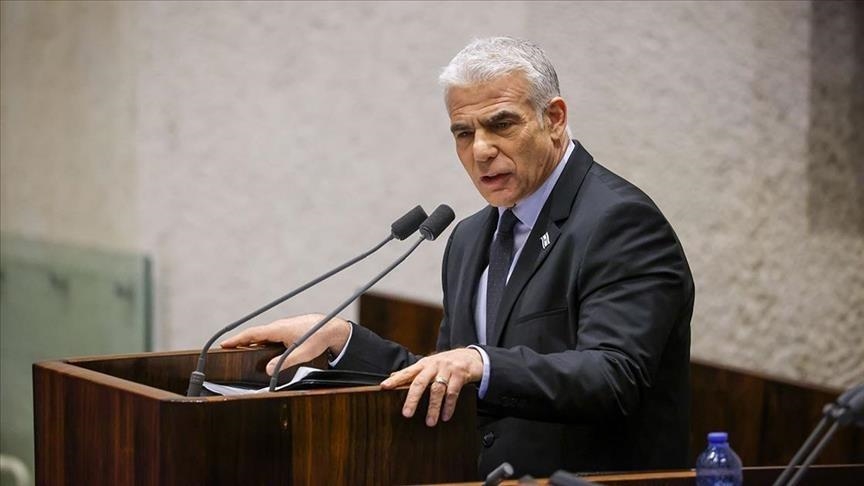Head of the Israeli opposition, Yair Lapid, has welcomed a proposal by President Isaac Herzog to solve the current political crisis, considering the government coalition’s rejection to the plan a “contempt for the institution of the presidency.”
This came in Lapid’s tweets late Wednesday, after the government coalition led by Benjamin Netanyahu announced its rejection of the “People’s Outline” put forward by Herzog earlier Wednesday evening.
The Israeli president presented a modified plan to reform the judiciary, after the original plan presented by the government sparked a major division within society.
“I congratulate the president on the People’s Outline,” Lapid said, adding: “The State of Israel is torn apart, and we must do our utmost to prevent an economic, security, and social disintegration that seriously harms national strength.”
Stressing that the president’s proposal should be respected and taken seriously, Lapid labeled the coalition government’s rejection to the plan as a “contempt to the institution of the presidency.”
He went on to assert that the government’s rejection erases “the idea that we are one people.”
The opposition leader vowed to continue the protests as long as the coalition continues to move forward with the plan, which poses a “threat to democracy.”
Netanyahu announced his rejection of President Herzog’s plan, and said in a tweet that “any attempt to reach an understanding and talk is certainly appropriate … but unfortunately the matters presented by the president were not agreed upon by the representatives of the coalition.”
Netanyahu said the main provisions of the plan presented by Herzog only serve to perpetuate the status quo and do not achieve the required balance between the Israeli authorities.
During a speech earlier Wednesday, Herzog warned of the outbreak of civil war in his country in light of the sharp division in Israeli society due to the government plan that weakens the authority of the judiciary, and Netanyahu says that it aims to restore balance between the legislative, executive, and judicial powers.
In the past two months, thousands of Israelis have taken to the streets to protest Netanyahu’s plans for judicial overhaul, seen by the opposition as an attempt to reduce the powers of the judicial authority in favor of the executive authority.
Proposed by Justice Minister Yariv Levin, the reform, if enacted, would be the most radical change ever in the system of government in Israel.
The planned change would severely limit the power of the Supreme Court of Justice, give the government the power to choose judges, and end the appointment of legal advisers to ministries by the attorney general.
However, Netanyahu, who is on trial for corruption, insists that his judicial plan would enhance democracy.
* Writing by Mahmoud Barakat in Ankara




















































Be First to Comment